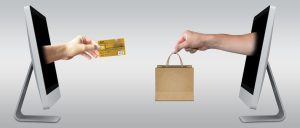8 Tips to Control Drunk Shopping: How To Spend Less While Drunk
Statistics show that a major percentage of alcohol-consuming Americans shop when drunk. The spending keeps increasing each year, boosting the now billion-dollar drunk shopping industry.
In 2019, The Hustle, a premium research company, did a survey on 2000 adult alcohol drinkers and discovered that 79 percent engaged in drunk shopping, with each spending around $444 per year. These statistics are backed up by a 2020 survey by Finder, which revealed that almost a quarter of all Americans shop under influence.
Why do some of us make impulse purchases while drunk? A lot of it has to do with how alcohol affects the brain. Drinking momentarily reduces stress and affects memory, making us more likely to forget financial responsibilities, or convince ourselves we have enough cash to treat ourselves. But the morning after, many of us wake up hungover and regretful, wishing we hadn’t spent so much.
If this sounds like you some mornings, here are 8 tips to avoid spending extra money when you’re drunk—especially when stuck at home.
1. Disable Shopping App Alerts

Stores like to send offers straight to your device. When sober, you can choose not to buy something they’ve sent, no matter how much you like it. But when drunk, chances are you’ll spring for something that looks enticing enough.
That’s why it’s smart to disable these alerts. You can do it before you start drinking, but a more foolproof strategy is doing away with them completely. You don’t need to learn about these offers from your phone. Even if you want discounts, you can visit the store or pull up the website directly. This ensures you’re actually being intentional about shopping.
2. Remove Credit Card Information
Saving your credit card information is convenient, for sure. However, it also promotes impulse purchases, since you don’t have to go through a lot of trouble to shop.
If you struggle with shopping while drunk, try deleting your credit card information from each of your apps, and even your internet browsers. Next time you’re tempted to make a drunk purchase, you might find it too irritating to start fetching cards and remembering passwords. This might be annoying when sober too, but at least it’ll keep your finances safe.
3. Disable One-Touch Shopping
If you’re unable to remove your card information, this is a good alternative tactic. Numerous shopping sites offer products one touch away from your money. When your inhibitions are lowered by alcohol, it’s all too easy to just click away, without thinking.
By creating a few more steps between you and your card, PayPal and other similar systems can help you pause longer in making drunken online purchases—perhaps long enough to lose interest.
4. Delete Shopping Store Apps
But what if you don’t mind fetching your credit cards and filling in the information to get some irresistible item? And what if you can’t resist browsing on your phone while drunk? If that’s the case, consider deleting any shopping apps on your phone. This will make it harder to find those must-have deals when you’re bored and a little bit buzzed.
5. Deal With the Source

Your money’s proximity may be one of the factors fueling your drunken purchases. So, whether you prefer cash, mobile banking, or cards, consider making your preferred method of payment harder to access.
You can physically put credit cards and cash in a lockable place, and put mobile money in a savings account, making it mentally taxing to retrieve the funds. Whichever strategy makes your money tough to reach, use it.
6. Set Accountability Measures
If you have someone you can trust with your finances, work out a plan for avoiding overspending while drunk. For example, before you start drinking, consider asking a friend to hold your cards, and only let you withdraw more cash in an emergency.
This is somewhat similar to finding a sober buddy or ally to help you avoid binge drinking when you go out. If the person is trustworthy, and the support goes in both directions, this can help—especially in social situations.
7. Use Drunk Online Shopping Prevention Apps
Another way to avoid those drunken online purchases is through inhibiting apps. Like many of the above strategies, these also help you pause and think before acting on impulse.
One such option is Icebox, created by Finder. It’s a chrome extension that replaces the “Buy” button with “Put It On Ice.” When you put it on ice, you cannot buy it until the cooling period is over. By the time you can gain access to it, you’ll likely be more sober-minded.
8. Reduce or Stop Drinking
All the above tips can help, but the surest strategy is to drink responsibly. The more you can control your drinking, the more likely it is you’ll be sober enough to realize you really don’t need that enticing pair of shoes, or even that extra pizza.
As above, “there’s an app for that.” Ria Health is one option that lets you access coaching support, anti-craving medication, and even digital tools to track how much you’re consuming. Best of all, you don’t need to be an alcoholic to join—our 100 percent online program meets you wherever you’re at.
Curious how you can cut back on overdrinking with the latest technology? Get in touch with a member of our team to learn more.
Will insurance cover treatment? Verify Coverage
Have Questions? Call (800) 504-5360



